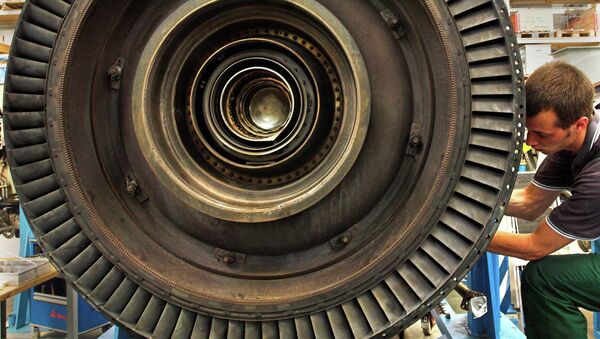MOSCOW (Sputnik) — Earlier USC head Alexei Rakhmanov said that his company is going to sue the German company for refusing to supply the prepaid engines for Russian corvette ships. The contract is reportedly worth 24 million euro (some $26,5 million).
“We are now preparing our court position on MTU. We have met with them, explained them … where they are wrong. It appears that the colleagues have understood us, we hope we can resolve this situation with small losses,” Rakhmanov said in an interview with Echo Moskvy radio.
The German MTU company is one of the world’s leading manufacturers of large diesel engines used on large ships and heavy agricultural and rail vehicles.
The European Union started introducing sanctions against Moscow in 2014, citing the Kremlin's alleged involvement in the Ukraine crisis – the claim that Moscow repeatedly denied. In June 2015, the bloc decided to prolong its sanctions for another six months.




